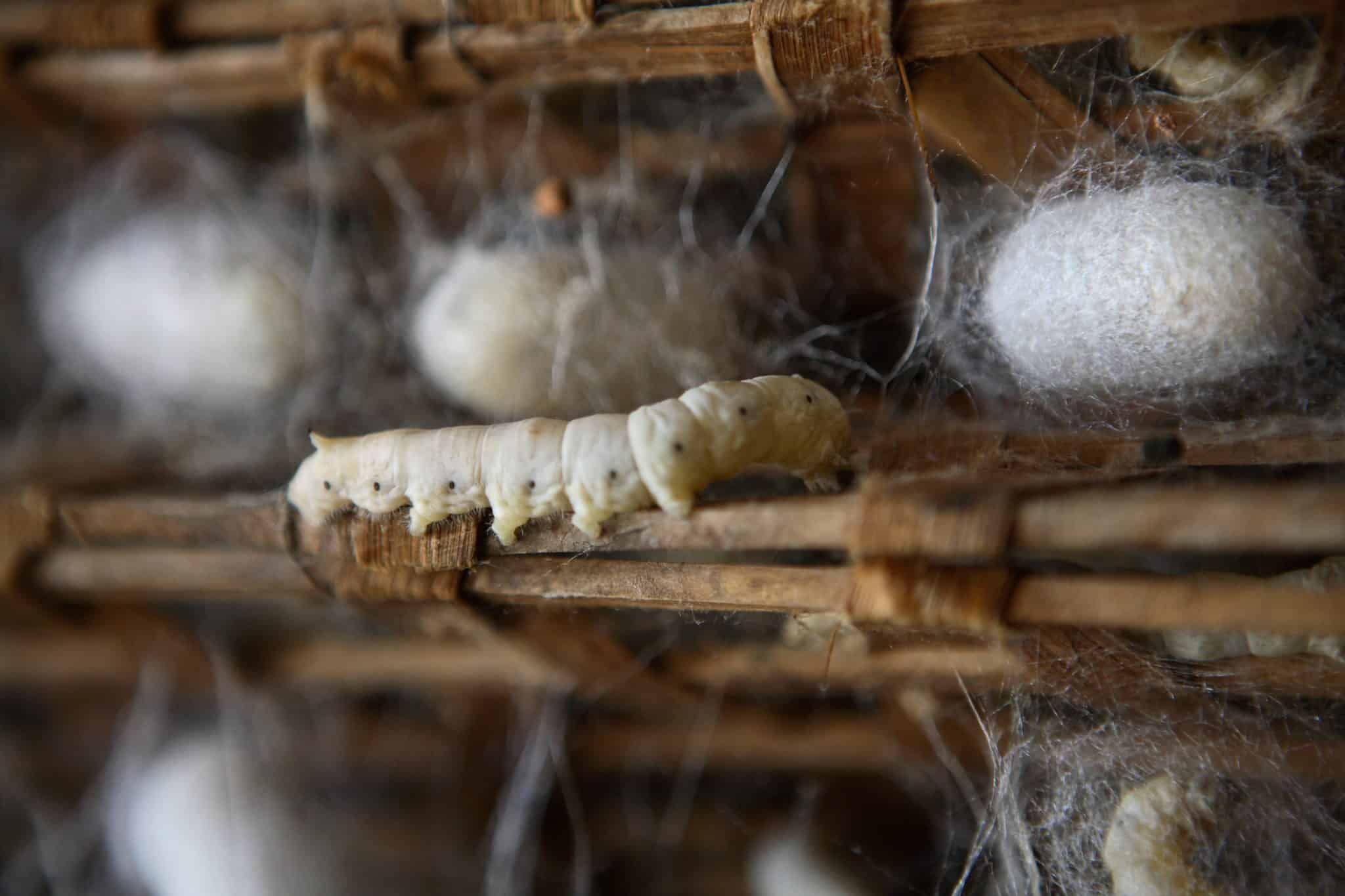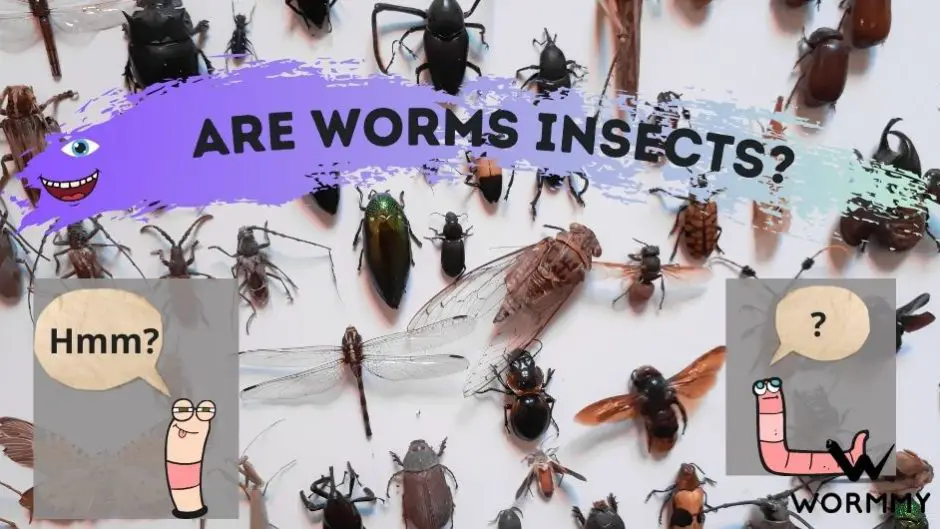Let’s face it, worms are one of those creatures that make you stop and wonder. Are worms insects? Is that even a thing? Or are they something entirely different? Well, grab your magnifying glass and a little curiosity, because we’re about to dive deep into this question and uncover some surprising truths about our wriggly friends. Whether you’re a science enthusiast or just someone who’s curious about the creepy crawlies in your backyard, this article is going to give you all the dirt – literally!
You’ve probably seen worms before, right? Whether you’re flipping over rocks in the garden or digging into your compost pile, these little critters are everywhere. But here’s the thing – when it comes to classifying them, things get a little muddy. Are worms insects? Or are they something else entirely? Turns out, the answer isn’t as simple as you might think. Let’s break it down.
Now, before we get too deep into the science, let’s talk about why this question matters. Understanding what worms really are can help us appreciate their role in our ecosystems. They’re not just random squiggly things in the soil; they’re actually super important for keeping our planet healthy. So, buckle up, because we’re about to take a journey through the world of worms and find out if they’re insects or not.
What Are Worms Anyway?
First things first, let’s talk about what worms actually are. Worms are a group of elongated, soft-bodied creatures that belong to various phyla in the animal kingdom. They’re not all the same, and they come in different shapes, sizes, and habitats. Some live in soil, others in water, and some even live inside other animals (gross but true!). But here’s the kicker – worms are not insects. Let me explain why.
Key Characteristics of Worms
Worms have some pretty unique features that set them apart from insects. Here’s a quick rundown:
- Body Structure: Worms typically have a long, cylindrical body without any limbs. Insects, on the other hand, have three distinct body parts – head, thorax, and abdomen – along with six legs.
- Phylum: Most worms belong to the phylum Annelida (segmented worms), while insects belong to the phylum Arthropoda. This is a big deal in the world of biology.
- Habitat: Worms can live in soil, water, or even inside other organisms, whereas insects are mostly terrestrial and have wings in many cases.
Why People Think Worms Are Insects
Now, you might be wondering why some people think worms are insects. Well, it’s all about perception. Worms and insects are both small creatures that we often see in our daily lives, and they share some superficial similarities. For example:
- Both are often found in similar environments, like gardens or forests.
- They’re both considered creepy crawlies by many people.
- Some worms, like caterpillars, look a bit like insects when you first see them.
But here’s the thing – just because they look similar doesn’t mean they’re the same. Insects and worms are entirely different groups of animals with distinct characteristics.
Common Misconceptions About Worms
There are a few common misconceptions about worms that contribute to the confusion:
- People often assume that anything small and wriggly is an insect.
- Some worms, like inchworms, are actually the larval stage of moths, which adds to the confusion.
- Worms don’t have legs, which makes them seem simpler than insects, but that doesn’t mean they’re the same.
Are Worms Insects? The Scientific Answer
Alright, let’s get scientific for a moment. Worms are not insects. Here’s why:
- Classification: Worms belong to various phyla, including Annelida (earthworms), Nematoda (roundworms), and Platyhelminthes (flatworms). Insects, on the other hand, belong to the phylum Arthropoda.
- Body Segmentation: While both groups have segmented bodies, the way these segments are organized is completely different. Insects have a head, thorax, and abdomen, while worms have a simpler body plan.
- Respiration: Worms breathe through their skin, whereas insects have a complex respiratory system called tracheae.
So, scientifically speaking, worms and insects are not the same thing. They’re both fascinating creatures in their own right, but they belong to entirely different groups in the animal kingdom.
Breaking Down the Phyla
Let’s take a closer look at the phyla that worms belong to:
- Annelida: This group includes earthworms, leeches, and other segmented worms. They have a distinct body structure with ring-like segments.
- Nematoda: Also known as roundworms, these creatures are unsegmented and often microscopic. They’re found in soil, water, and even inside other organisms.
- Platyhelminthes: Flatworms are another group of worms that include tapeworms and flukes. They’re mostly parasitic and have a flat body shape.
The Role of Worms in Ecosystems
Now that we’ve established that worms are not insects, let’s talk about why they’re so important. Worms play a crucial role in maintaining healthy ecosystems. Here’s how:
- Soil Aeration: Earthworms help aerate the soil by burrowing through it, which allows water and nutrients to penetrate deeper.
- Decomposition: Worms break down organic matter, turning it into rich compost that plants love.
- Food Source: Many animals, including birds and fish, rely on worms as a primary food source.
Without worms, our ecosystems would be in big trouble. So, while they might not be insects, they’re definitely worth appreciating.
Fun Facts About Worms
Here are a few fun facts about worms that might surprise you:
- Earthworms don’t have eyes, but they can sense light.
- Some species of worms can live for over 10 years.
- Worms don’t have lungs; they breathe through their skin.
How Worms Differ From Insects
Let’s compare worms and insects side by side to see how they differ:
- Body Structure: Worms have a simple, elongated body, while insects have a more complex body with distinct segments.
- Limbs: Insects have six legs, whereas worms have none.
- Habitat: Worms are mostly soil-dwellers, while insects can be found in a variety of environments.
These differences might seem small, but they’re significant in the world of biology.
Why Does This Matter?
Understanding the difference between worms and insects is important for several reasons:
- Ecosystem Health: Knowing the role of each creature helps us appreciate their importance in maintaining balance.
- Conservation: By understanding what worms really are, we can better protect them and their habitats.
- Education: Learning about these differences can inspire curiosity and a love for science in young minds.
Conclusion: Are Worms Insects?
So, there you have it – worms are not insects. They’re fascinating creatures in their own right, with unique characteristics and important roles in our ecosystems. Whether you’re a gardener, a scientist, or just someone who’s curious about the world around you, understanding worms can open up a whole new world of appreciation for these tiny but mighty creatures.
Now, here’s where you come in. If you found this article helpful, why not share it with your friends? Or, if you have any questions or thoughts, leave a comment below. And hey, if you’re feeling adventurous, grab a shovel and go explore the world of worms in your own backyard. Who knows what you might discover!
Table of Contents


